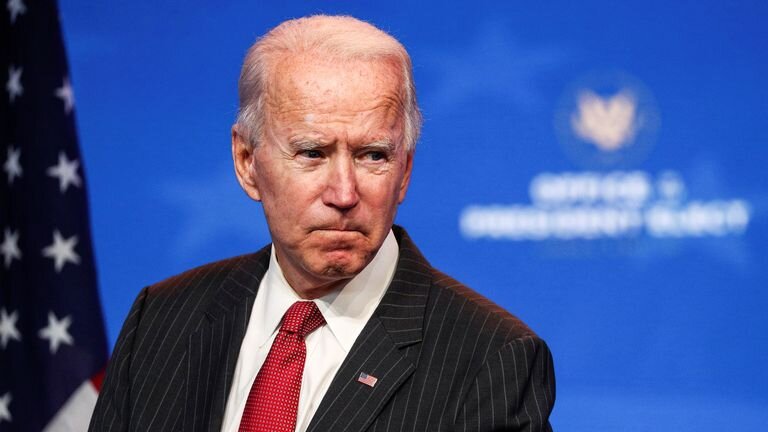Biden likely to fail in resolving America problems in four years

TEHRAN – As Joe Biden prepares to move into the White House in a few weeks, experts highlight the difficulties that he will face once he is inaugurated. An expert on international relations told the Tehran Times that a Biden administration would likely fail to address all issues weighing on the United States foreign policy in the coming years.
The expert, Mohsen Jalilvand, said Biden will address the most urgent issues at home and then address foreign policy issues such as the 2015 Iran nuclear deal, officially called the Joint Comprehensive Plan of Action (JCPOA).
“The first duty that every U.S. president should do is to address urgent domestic issues. Right now, Biden is faced with two urgent issues: the coronavirus pandemic and low economic growth,” Jalilvand told the Tehran Times, adding that the U.S. economy was doing well under Trump but the coronavirus pandemic dealt a severe blow to it, a move that led to Trump losing the U.S. presidential election in November.
According to Jalilvand, Biden is likely to address the pandemic and its economic impact and then take on foreign policy issues but these issues are also so complicated that may not be resolved in four years.
“JCPOA will not be a top priority for Biden’s foreign policy. His top priority will be the U.S. strategy against China, which is articulated in a 2012 U.S. national security strategy,” Jalilvand said.
During his election campaign, Biden vowed that he would rejoin the JCPOA if Iran returns to compliance with the 2015 nuclear deal.
“I will offer Tehran a credible path back to diplomacy. If Iran returns to strict compliance with the nuclear deal, the United States would rejoin the agreement as a starting point for follow-on negotiations. With our allies, we will work to strengthen and extend the nuclear deal's provisions, while also addressing other issues of concern,” then-candidate Biden said in a mid-September op-ed for CNN.
Biden has recently reiterated this position in an interview with The New York Times’ Thomas Friedman. He told the columnist that he still stands by his views on the Iran nuclear deal that were articulated in the mid-September op-ed.
But Biden is yet to say how he would rejoin the nuclear deal, Jalilvand remarked, adding that this ambiguity is a question in itself.
“How does Biden want to rejoin the JCPOA?” asked the expert.
Biden himself has said the return of the U.S. to the nuclear deal will not be easy.
When asked by Friedman whether he still stands by his views on the Iran deal that he expressed in the September 13 op-ed for CNN, Biden answered, “It’s going to be hard, but yeah.”
Biden said in a Thursday interview with CNN that he thinks he will have “very difficult” issues dealing with Iran. “He [Trump] has pulled out to get something tougher, and what have they done? They've increased the ability for them to have nuclear material. They're moving closer to the ability to be able to have enough material for a nuclear weapon. And there's the missile issues,” Biden said, adding, “All those things, I think, are going to be very difficult. But I know one thing: We cannot do this alone. And that's why we have to be part of a larger group, dealing not only with Iran, but with Russia, with China and a whole range of other issues.”
Jalilvand said that Trump and his foreign policy team are likely to raise a “package of issues” such as Iran’s missile program, its regional influence, and human rights.
In his interview with Friedman, Biden said that he will pursue follow-on agreements with Iran on its nuclear and missile issues.
“In consultation with our allies and partners, we’re going to engage in negotiations and follow-on agreements to tighten and lengthen Iran’s nuclear constraints, as well as address the missile program,” Biden said.
However, Biden put more emphasis on the nuclear issue than the missile one. “Look, there’s a lot of talk about precision missiles and all range of other things that are destabilizing the region,” Biden noted, adding that “the best way to achieve getting some stability in the region” is to deal “with the nuclear program.”
If Iran gets a nuclear bomb, Biden claimed, it puts enormous pressure on the Saudis, Turkey, Egypt and others to get nuclear weapons themselves. “And the last goddamn thing we need in that part of the world is a buildup of nuclear capability.”
Europeans also seem to be on the same page with Joe Biden. They also called for follow-on agreements with Iran that would include Iran’s missiles and its regional influence in addition to the nuclear issue.
German Foreign Minister Heiko Maas said on Friday that Berlin is looking for an alternative, broader nuclear agreement with Iran in place of the existing agreement which is “no longer enough,” according to the Russian Sputnik news agency.
“A form of 'nuclear agreement plus' is needed, which also lies in our interest. We have clear expectations for Iran: no nuclear weapons, but also no ballistic rocket program that threatens the whole region. Iran must also play another role in the region”, Maas said in an interview with Der Spiegel, adding that the broader accord is needed as Iran cannot be trusted.
It remains to be seen whether the Europeans would succeed in crafting a strategy that addresses Iran-related issues all at once. Iranian officials have said that they will not renegotiate the JCPOA, let alone expanding it.
Jalilvand believes that Biden will not have enough time and energy to address all Iran-related issues during his tenure, which is widely expected to be one-term president due to his age. Therefore, Biden is highly likely to delay resolving many issues and pass them on to the next president of the U.S.
